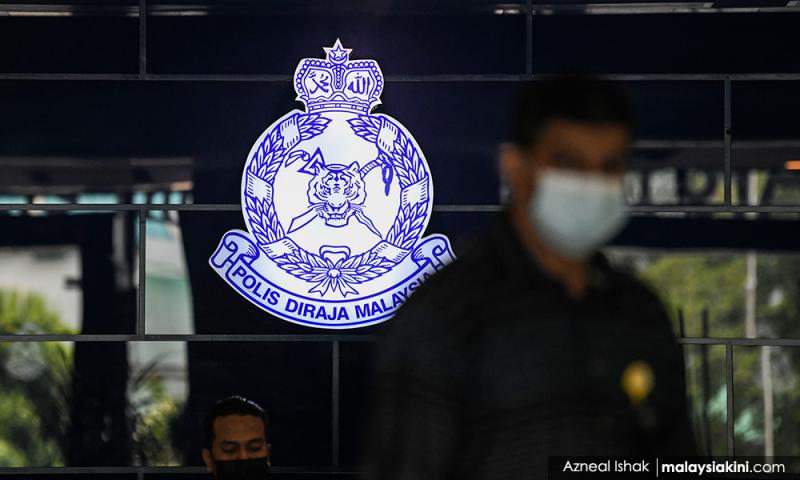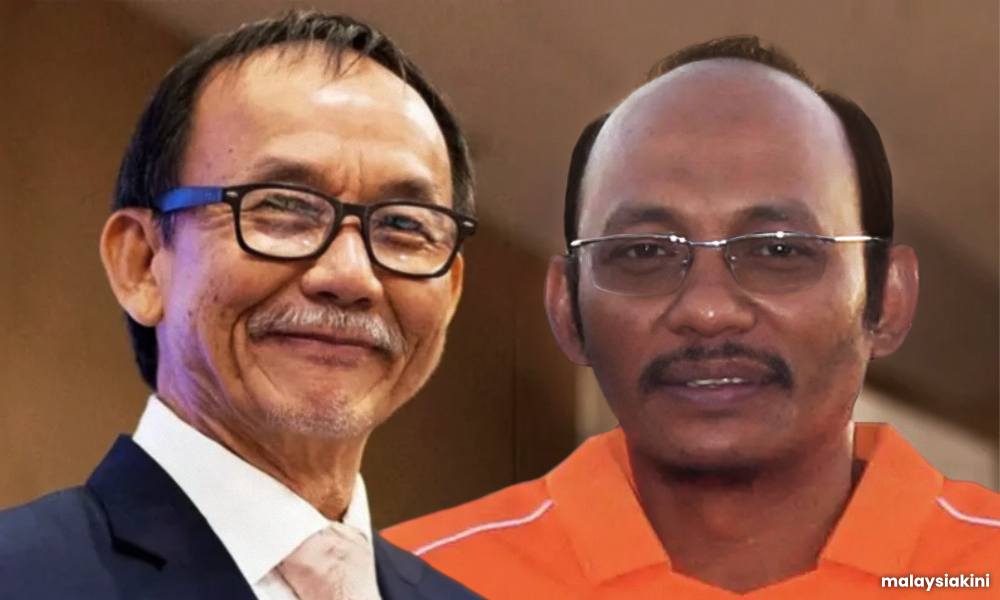

Police confused over states' inconsistent Shia policies: Ex-SB officer
Hariz Mohd
Published: Apr 7, 2025 8:10 PM
Updated: Apr 8, 2025 12:05 AM
Summary
- Ex-SB officer tells court that police were confused over the inconsistent policies practised in different states on Shia teachings.
- Awaludin says some states declared Shia teachings as deviant while others did not.
- He testifies this during Koh's family civil suit proceedings on the pastor’s enforced disappearance.
Police and its intelligence arm the Special Branch were confused over the inconsistent policies adopted by different states on Shia teachings, the Kuala Lumpur High Court heard today.
Former Special Branch principal assistant director Awaludin Jadid said the confusion came as some religious authorities have declared Shia as deviant from Islam and took action against its teachings, while states like Penang held an opposite view.
"There was no consistency when it comes to actions taken by the states' Islamic affairs departments," he testified during a civil suit hearing initiated by the family of Pastor Raymond Koh, who disappeared on Feb 13, 2017.
Koh's family wanted the government to be responsible for his enforced disappearance.
The family of Amri Che Mat, a social activist who was allegedly involved in the Shia belief, has also filed a separate suit against the government over his disappearance in 2016.
Former Special Branch principal assistant director Awaludin Jadid said the confusion came as some religious authorities have declared Shia as deviant from Islam and took action against its teachings, while states like Penang held an opposite view.
"There was no consistency when it comes to actions taken by the states' Islamic affairs departments," he testified during a civil suit hearing initiated by the family of Pastor Raymond Koh, who disappeared on Feb 13, 2017.
Koh's family wanted the government to be responsible for his enforced disappearance.
The family of Amri Che Mat, a social activist who was allegedly involved in the Shia belief, has also filed a separate suit against the government over his disappearance in 2016.

Raymond Koh (left) and Amri Che Mat
Awaludin's testimony came during cross-examination by the plaintiff's lawyer Jerald Gomez, who wanted the retired police officer to confirm the content of a ceramah he gave several weeks before Amri disappeared.
At the time Awaludin was in charge of the Special Branch's extremism division known as E2, whose duties include gathering intelligence regarding religious and social extremism activities in the country.
According to an excerpt from the ceramah transcript, which Gomez read out in court, Awaludin had told his audience that police became confused when religious leaders in Penang declared Shia teachings as not against Islam.
"We became confused because, for one, every state has banned the practice of Shia teachings but (there are places like) Penang where we could not (summon people to) record statements.
"This was because some states take action (against Shia) while others don’t," he said.
Amri disappeared in Perlis on Nov 24, 2016, while Koh was abducted in broad daylight in Petaling Jaya, Selangor, on Feb 13, 2017.
In 2019, Suhakam concluded that Koh and Amri's abduction were enforced disappearances perpetrated by Bukit Aman’s Special Branch.
At the time Awaludin was in charge of the Special Branch's extremism division known as E2, whose duties include gathering intelligence regarding religious and social extremism activities in the country.
According to an excerpt from the ceramah transcript, which Gomez read out in court, Awaludin had told his audience that police became confused when religious leaders in Penang declared Shia teachings as not against Islam.
"We became confused because, for one, every state has banned the practice of Shia teachings but (there are places like) Penang where we could not (summon people to) record statements.
"This was because some states take action (against Shia) while others don’t," he said.
Amri disappeared in Perlis on Nov 24, 2016, while Koh was abducted in broad daylight in Petaling Jaya, Selangor, on Feb 13, 2017.
In 2019, Suhakam concluded that Koh and Amri's abduction were enforced disappearances perpetrated by Bukit Aman’s Special Branch.

Enforced disappearance is the secret abduction or imprisonment with the backing of the state, followed by refusal to acknowledge the victim's fate or whereabouts, to place the abductee or detainee outside the protection of the law.
Via the lawsuits, the two men's families seek to compel the authorities to disclose the victims' whereabouts.
‘Shia followers are enemies’
During cross-examination, Awaludin confirmed that he had described Shia followers as “musuh” (enemies) during a seminar at the Home Ministry in 2016.
"Because Shia is against the Ahlus Sunnah Wal Jamaah belief," he said when asked to elaborate on what he meant by “enemy”.
Awaludin also confirmed that he had said during the ceramah that police were hoping PAS would not rejoin the Pakatan Rakyat coalition and instead be their “rakan” (partner).
Pakatan refers to an informal political pact that consisted of PKR, DAP and PAS.
According to the retired officer, the police were hoping for PAS to become their partner "in doing programmes".
During a later part of the proceedings, Awaludin deflected a series of questions that Gomez posed over police procedures.
He said he "does not know" whether police could trace the whereabouts of individuals using their family members, Road Transport Department records, MySejahtera health application and the Inland Revenue Board, as it is "outside of my jurisdiction".
No comments:
Post a Comment